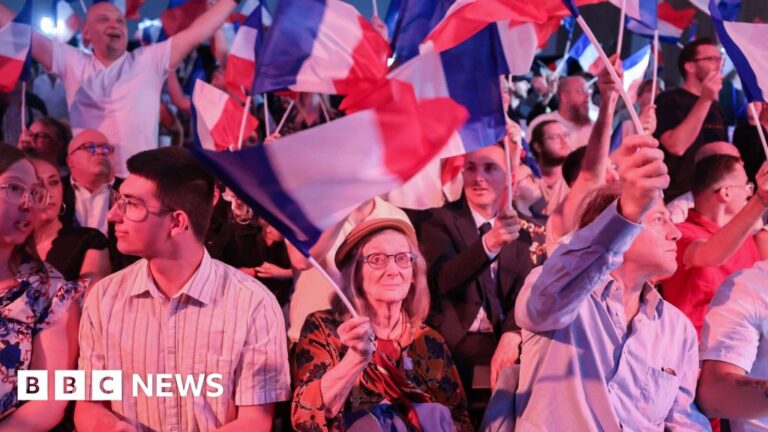The far-right National Rally (RN) has won another victory and is now well on its way to achieving its goal of shaking up French politics.
We will talk a lot in the days to come about the abandonment of centrist and left-wing candidates in the second round in order to concentrate the anti-RN vote – and we will lament a lot about the disappearance of the former Republican Front (while the other parties agreed to keep the extreme right aside).
But it would take an upheaval of monumental proportions to overturn the only conclusion that can be drawn from this first round of voting, namely that the RN is now undoubtedly the strongest party in the country. dominant political force In France.
However, what remains to be decided over the next week remains quite significant.
This is the difference between a far-right government that has a free hand because of an absolute majority in the National Assembly and a far-right government that cannot do much because the Assembly is divided.
Currently, seat projections give the RN between 260 and 310 seats. Knowing that 289 seats constitute an absolute majority, there is obviously a lot left to play for.
To limit the damage to their cause, French President Emmanuel Macron’s centrists and the left-wing New Popular Front alliance will call on their supporters to vote tactically in the second round on July 7. Even if their own candidate is eliminated, voters will be asked to choose the candidate in their constituency who will face the RN.
But the problem with this kind of partisan order is that fewer and fewer people listen to it.
The disappearance of the shame that once accompanied the RN vote has been a long process, but it can now be declared complete.
The other difficulty for opponents of the RN is the high number of so-called triangular votes in the second round, in other words constituencies where not two but three candidates will compete next Sunday. Usually one for the center, one for the far right and one for the left.
The reason for the high number of triangulars is the high voter turnoutwhich is itself the result of high stakes.
It is also because the blitz campaign This made it impossible for the smaller parties to unite, so the vote was concentrated among the three blocs.
Obviously, if there are three parties competing in a constituency, it is more difficult for the anti-RN vote to come together. In many places, centrist or left-wing candidates will stand aside – but far from all.
In general, the country now seems gripped by a feeling of the inevitability of a victory for the far right. What was once considered an enormity that should not even be contemplated is now a tangible fact waiting to happen.
This depresses and angers many people, especially in big cities like Paris, where a wind of gloom is blowing.
Elsewhere – in the woods – people probably feel the opposite.


